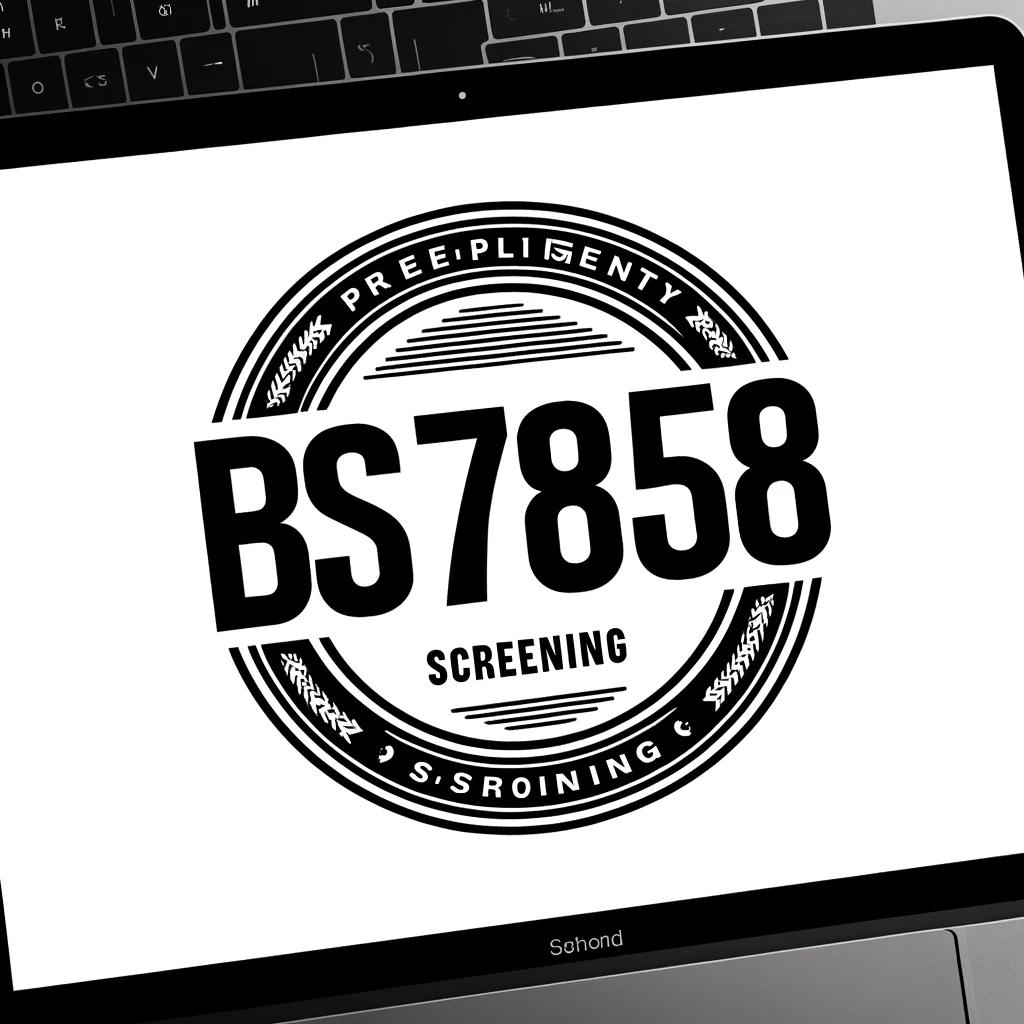

By conducting these comprehensive checks, BS7858 vetting enhances the recruitment process, providing employers with valuable insights into the integrity and suitability of po-tential employees. Adhering to these criteria not only fosters a secure work environment but also promotes confidence in the reliability and credibility of the workforce.
BS7858 Screening Process, The BS7858 screening process efficiently verifies candidate backgrounds through a series of essential checks and screenings. This process ensures the integrity and security of the workplace by thoroughly vetting potential employees. Here are four key components of the BS7858 screening process:
1. ID Verification: Confirming the identity of the candidate is crucial to establish trust and credibility.
2. Right to Work Checks: Ensuring that candidates have the legal right to work in the coun-try is essential for compliance and security.
3. 5-Year Employment History Check: Reviewing the candidate's work history over the past five years helps in understanding their background and experience.
4. Credit Check with PEP and Sanctions Screening: This check helps assess the candi-date's financial probity and potential risk factors that may affect their suitability for the role.
Legality of BS7858 Vetting, As you move forward from understanding the screening pro-cess of BS7858, it's important to recognize the voluntary nature of BS7858 vetting in the UK and its distinct focus on candidates' conduct history in security roles. Unlike some mandatory security checks, BS7858 vetting isn't a legal requirement but is voluntarily adopted by businesses seeking to maintain secure environments and trustworthy em-ployees. This voluntary nature gives organizations flexibility in implementing these thor-ough background checks based on their specific needs and industry standards.
Even though BS7858 vetting isn't a legal mandate, its focus on scrutinizing the conduct history of individuals applying for security roles contributes significantly to ensuring a safe and reliable workforce. By delving into candidates' past behaviors and employment records, this vetting process adds an extra layer of security and confidence in hiring deci-sions, which can be crucial in security-sensitive environments. Understanding the volun-tary nature and the emphasis on conduct history of BS7858 vetting helps organizations make informed choices in their recruitment processes.
Timeframe for BS7858 Checks, Efficiently completing background checks is crucial for maintaining security and trust in recruitment processes. When it comes to BS7858 checks, the timeframe for completion is a key aspect to consider. Here are some im-portant points regarding the time required for BS7858 vetting:


1. Typical Duration: BS7858 checks typically take around 7-10 working days to complete, providing a reasonable timeframe for thorough screening.
2. Variability: The timeframe may vary based on the complexity of the candidate's history and the efficiency of the vetting process, highlighting the need for a flexible approach.
3. Efficiency Matters: Efficient processing can expedite the checks, ensuring quicker results and reducing the waiting time for both employers and candidates.
4. Possible Delays: Delays may occur if additional information or clarifications are needed during the screening process, emphasizing the importance of providing accurate and complete details upfront.
Contrasting BS7858 and BPSS, Moving from the discussion on the Timeframe for BS7858 Checks, let's now compare BS7858 vetting with BPSS for a clearer understanding of their respective security screening standards.
BS7858 is tailored for employment in high-risk settings, while BPSS serves as a baseline for security checks. BS7858 encompasses credit checks, employment history verifica-tion, and global watchlist screenings, going beyond basic identity and criminal record checks, which are the focus of BPSS.


Industries like finance and healthcare often utilize BS7858 for thorough vetting, whereas government and public sector roles commonly adhere to BPSS requirements. The BS7858 process is more extensive, including additional checks compared to the foundational BPSS standard.
While BS7858 is recommended for certain sectors to ensure trust and safety, BPSS is mandatory for individuals in specific government positions. Understanding these distinc-tions can help organizations choose the appropriate vetting process based on their secu-rity needs and industry requirements.
Valid Documents for BS7858 Screening, Effective documentation is crucial for successful BS7858 screening, ensuring thorough verification of candidates' identities and eligibility. When preparing the necessary documents for BS7858 screening, make sure you have the following:
1. Primary Identification Documents: Provide a current passport, driving license, or na-tional identity card to establish your identity securely.
2. Proof of Address Documents: Submit utility bills, bank statements, or council tax state-ments displaying your current address for verification purposes.
3. Right to Work Documents: If you're an international candidate, ensure you have valid right to work documents like a biometric residence permit or visa.
